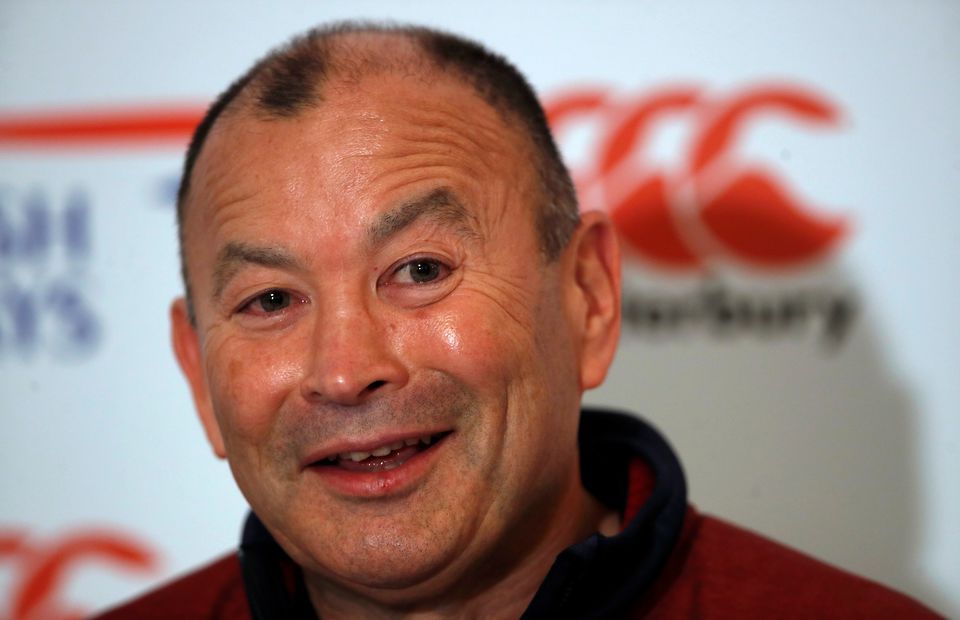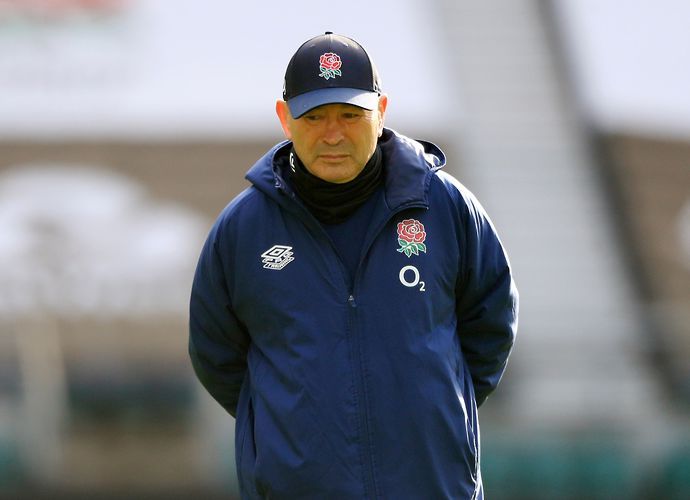With the sporting calendar currently shining a light on elite level rugby as England bid to retain their Six Nations crown, the insight Eddie Jones shared when speaking to The High Performance Podcast is as interesting as it is inspiring.
Sitting down with Jake Humphrey and Damian Hughes, Jones gave us a glimpse of what he believes high performance to be, as well as how to get yourself into a position from which you can embark towards it.
From a man to have achieved so much in his glittering coaching career, the intimate look into how events outside of his job is nothing short of uplifting. His is a story of triumph, of glory and of, well, high performance.
So, what are some of the key takeaways? How does a person of such stature actually define the level he's been operating at for years?
Here are three key takeaways GIVEMESPORT took from Eddie Jones' brilliant interview on The High Performance Podcast.
The definition of high performance
To really get to where we want to go, we must first understand exactly how successful people define the term 'high performance'. Indeed, with the podcast welcoming a wide-ranging selection of individuals, the beauty of it is that each guest puts their own spin on how they view it.
Jones, for example, talks of its changing face. Indeed, he talks of how high performance cannot be limited to just one aspect of life and that it requires a number of different factors.
"I think you're always just striving to be better," he said.
"I think when you're high performing you've got a number of things working. You've got the right people, you've got the right vision, you've got the right environment.
"It changes all the time. I think it's constantly changing its dynamic and, and your ability to observe and read what's needed for that environment at that time is the most important."
Identifying exactly what you need to control
Another fascinating bit of insight was a glimpse Jones gave us into how he first assesses the task in front of him. Reflecting on his time as a teacher, he recalled how he would instantly look for the areas he needed to control and zeroed in on them.
"So I'd have the same 15, 16-year-old boys for six lessons," he said.
"Whether it'd be maths, geography, PE, you're walking into a classroom like that and you've got to work that out.
"Who do I need to control? Who's going to help me? What areas of the room I don't have to worry about
"So your ability to get a feel for the group, I think is important."
Crafting your own schedule
Sometimes, the tendency is to think that people who have achieved so much in their field is that they simply work relentlessly from dusk until dawn. Still, as true as that can be at times, Jones' honest discussion about his working pattern is a lesson we can all learn from.
Indeed, he spoke of how he focused on what he thought his most productive time of day would be and then built the rest of his responsibilities around them.
"I usually go in about 5:00 AM and 5:00 AM to 6:00 AM is usually my most productive time," he said.
"Then after that, I train where I usually get some good thoughts where I'm not even thinking, but I usually get a couple of good thoughts for the day.
"Then I'll go back to the office.
"So generally, from five to about eight is my best time. The rest of the day, I don't try to do anything serious apart from just work with the players.
"Then I'll do a little bit at night again, if I'm in the right mood."
For more incredibly insightful interviews with elite sportsmen, women and entrepreneurs, make sure you subscribe to the High Performance Podcast on iTunes: https://podcasts.apple.com/gb/podcast/the-high-performance-podcast/id1500444735
















